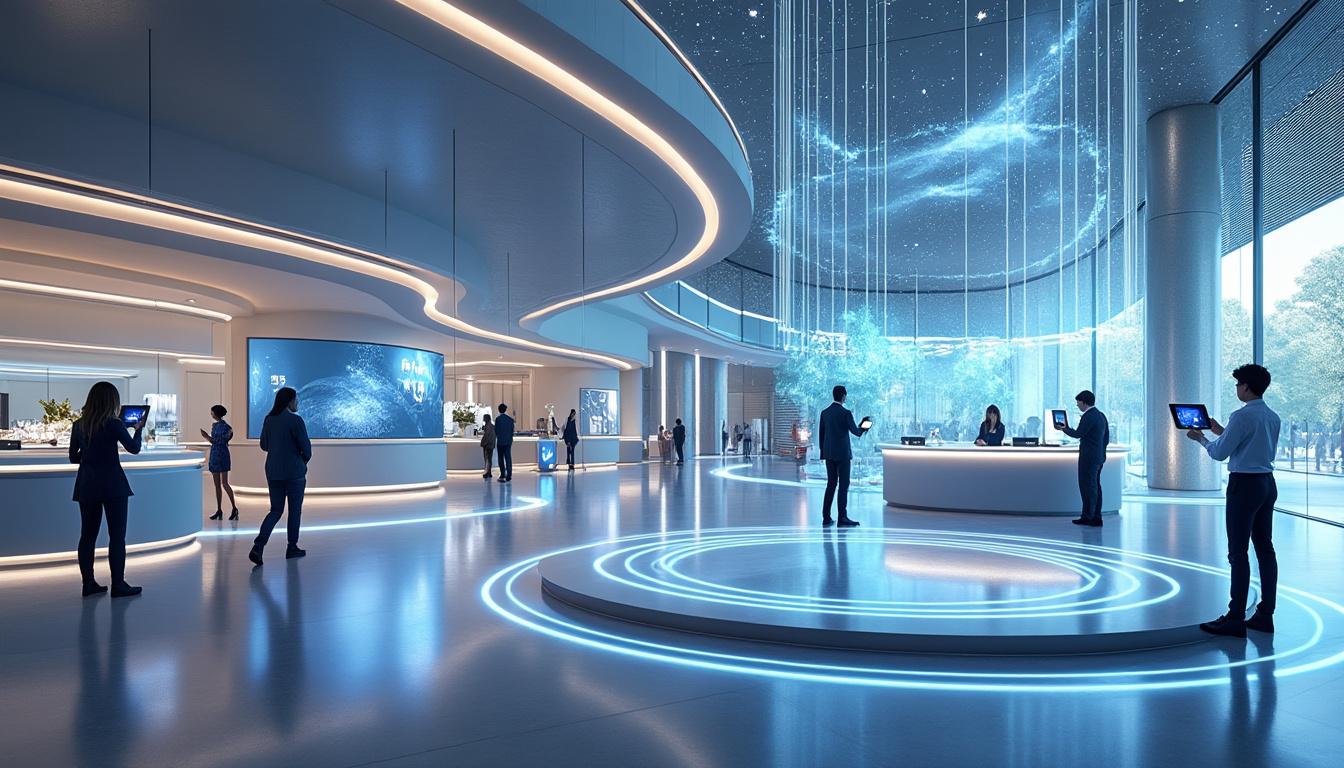The recent decision by Booking.com to sever ties with many travel influencers has sent ripples throughout the hotel industry, posing significant implications for how hotels engage with potential customers moving forward. This abrupt shift has not only impacted influencers but also those boutique hotels that relied on their visibility to reach niche markets effectively. As travel influencers played an essential role in enhancing customer engagement and building brand partnerships, the digital marketing landscape for hotels now faces serious recalibrations. In this analysis, the ramifications will be explored, providing insights and strategic recommendations to adapt to this evolving environment.
Understanding the Shift: Booking.com and Its Affiliate Program Changes
In June 2025, Booking.com initiated a restructuring of its affiliate program, which involved terminating thousands of partnerships with small, niche travel influencers. In a move that was unexpected, the company expressed a preference for working with larger, more streamlined affiliate networks. The primary justification was rooted in a desire to improve accountability and mitigate instances of fraud. However, for hotels that thrived on personalized content from these micro-influencers, the sudden shift poses a critical challenge.

Impact on Niche Influencers and Hotels
This strategic pivot raises crucial questions regarding visibility in the marketplace. Niche influencers, often characterized by their authentic and relatable storytelling, were instrumental in showcasing unique experiences at boutique hotels and guest houses. They provided vital organic reach through platforms like Instagram and TikTok, where their followers trusted their recommendations. With this affiliate program alteration, these influencers find themselves cut off from important revenue streams. This translates to less exposure for the hotels that depended on their content to drive bookings.
Here are several implications for hotels that should be considered:
- Reduced visibility: Many smaller hotels may struggle to attract attention without the grassroots marketing efforts of influencers familiar with their unique offerings.
- Loss of authentic storytelling: Influencers’ personal narratives around their stays fostered a sense of connection between potential guests and hotels, significantly influencing booking decisions.
- Shift to larger, impersonal affiliates: The emphasis on larger networks often results in less informed or personalized recommendations, affecting how potential guests perceive hotels.
Ultimately, while Booking.com aims to enhance operational efficiency in its affiliate marketing, the unintended consequences raise concerns for the hospitality industry.
Opportunities in the Wake of Change: What Lies Ahead?
Despite the challenges posed by Booking.com’s decision, this moment can also serve as a catalyst for innovation within hotel marketing strategies. Recognizing that the landscape is evolving, hotels can explore new avenues to sustain visibility and engagement with customers. One significant shift is the emergence of a new wave of travel affiliation models focusing on deeper connections between hotels and influencers. Instead of merely driving traffic through a transactional relationship, hotels could leverage influencers to create curated collections, showcasing their properties in a more meaningful way.

Integrating Social Media and Influencer Marketing
The future of hotel marketing in this era hinges on flexible, creative strategies that resonate with contemporary travelers. Below are some potential avenues hotels can pursue:
- Collaboration with Micro-Influencers: Smaller influencers often have higher engagement rates and foster stronger relationships with their followers. Collaborating with them can produce higher levels of authenticity.
- Building Long-Term Partnerships: Establishing ongoing relationships with selected influencers can enhance storytelling consistency, allowing the hotel’s brand narrative to remain front and center.
- Utilizing New Digital Marketing Tools: Platforms like WIWT (Wish I Was There) present opportunities for hotels to establish compelling partnerships directly with influencers, improving booking conversions through social selling.
Additionally, hotels should consider integrating advancements in digital marketing technology. Utilizing tools that enhance data analytics can optimize targeting and engagement strategies, making promotional efforts both effective and efficient.
Engaging with Customer Segments in the Digital Era
Today, as travelers increasingly seek personalized experiences, hotels must adapt their marketing strategies to align with changing consumer preferences. Social media has taken a prominent role in shaping these preferences, with platforms serving as virtual storefronts. Effective customer engagement now relies on dynamic interactions that foster connections between brands and potential guests.
Adapting Engagement Tactics
In the context of changes brought on by Booking.com’s alterations to its affiliate program, hotels can revitalize their customer engagement strategies through various means:
- Interactive Content: Hotels should create immersive online experiences that allow potential guests to interact with the brand. Virtual tours and live Q&A sessions can enrich the booking experience.
- Personalized Offers: Tailoring deals based on customer preferences—gleaned from social media interactions—can capture interest in a crowded marketplace.
- Continuous Feedback Loop: Encouraging guests to share their experiences via social media promotes engagement. Responding to feedback showcases a commitment to customer satisfaction.
Overall, adapting to new consumer behaviors in the digital age requires a robust, foresighted marketing approach. Establishing these connections not only enhances brand visibility but also strengthens relationships over time.
The Role of Brand Partnerships in the New Landscape
In the immediate aftermath of Booking.com’s decision to part ways with smaller partners, the focus shifts toward the importance of brand partnerships. Collaborating with other brands can enhance visibility, provide cross-promotional opportunities, and ultimately drive bookings. The hotel industry can benefit significantly from diversifying partnerships that align with its offerings and target market.
Leveraging Partnerships for Enhanced Visibility
Here are actionable strategies hotels can utilize to create efficacious brand partnerships:
- Collaborate with Non-Competing Businesses: Hotels can partner with local restaurants, tour operators, and activity providers to create enticing package deals that attract customers.
- Engage with Travel Agencies: Establishing relationships with travel agencies can amplify reach into target markets and provide constructive feedback on what travelers want.
- Joint Marketing Efforts: Pooling resources with other businesses for marketing campaigns can enhance creativity and reduce costs while broadening reach.
By cultivating these partnerships, hotels can bolster their positioning in the marketplace and maintain visibility amid shifts in the influencer landscape.
Looking Ahead: Preparing for a Transforming Hospitality Landscape
As the implications of Booking.com’s actions unfold, it is essential for hotels to remain adaptable and open to new marketing methodologies. The influencer marketing landscape is shifting, but it will not disappear; instead, it is transitioning into a more refined and focused model that may offer significant advantages to those willing to embrace it.
Establishing a Proactive Marketing Framework
Consider the following steps when adapting to the changing landscape:
- Monitor Industry Trends: Keeping an eye on evolving trends in travel and hospitality will drive innovation and offer competitive advantages.
- Invest in Digital Presence: In 2025, having a robust online presence is no longer optional. Investing in website optimization and social media engagement will be crucial.
- Engage with Customer Insights: Gathering and analyzing customer data will enhance strategic decisions and foster loyalty initiatives.
In summary, while the landscape of travel marketing is shifting due to Booking.com’s recent decisions, it also presents a wide array of opportunities for hotels willing to innovate and adapt. Embracing new partnerships, engaging with customers effectively, and utilizing social media strategically can pave the way for success in a transforming hospitality marketplace.
